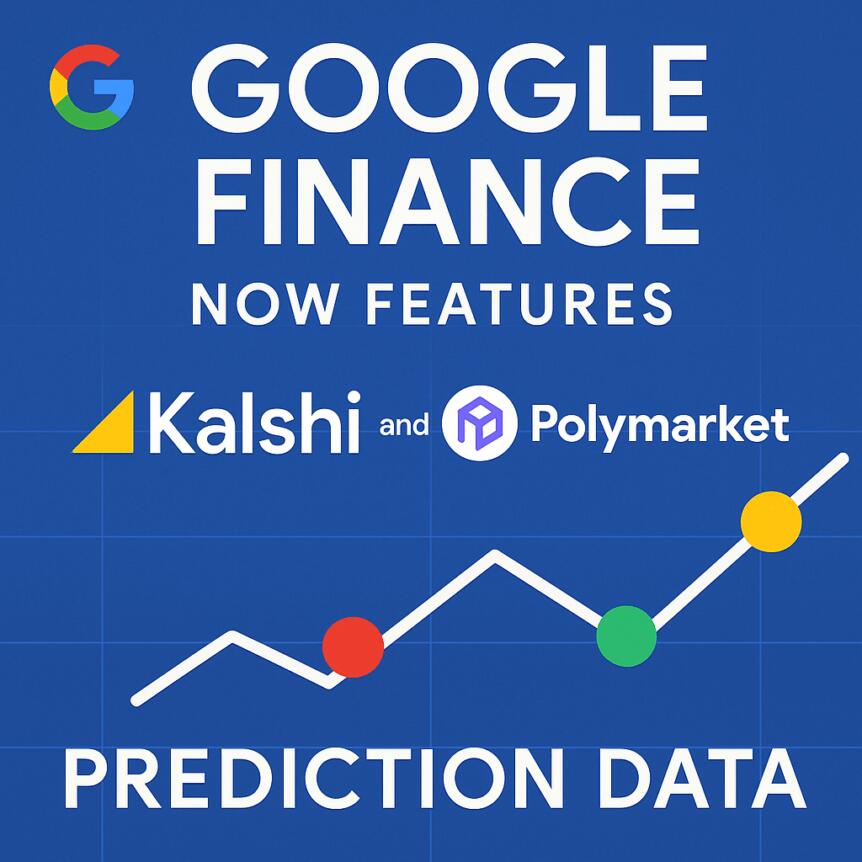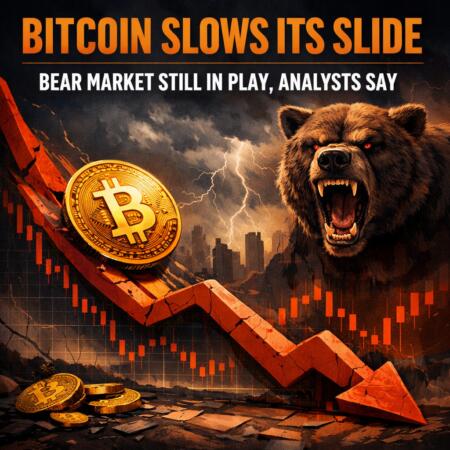- Google is rolling out prediction market data from Kalshi and Polymarket into search results, providing real-time probabilities for future events.
- The feature is part of an AI-driven upgrade to Google Finance, including Deep Search technology powered by Gemini models.
- Prediction markets are gaining traction, with companies like Robinhood, MetaMask, and Gemini exploring similar integrations across the crypto and traditional finance sectors.
- This movement marks a significant step toward mainstream acceptance of DeFi and blockchain-based forecasting tools.
- The integration allows for diverse event predictions, ranging from political outcomes to unconventional questions, reflecting the expanding scope of on-chain data in finance.
Google integrates prediction market data into search results
Google is now incorporating prediction market data from platforms such as Kalshi and Polymarket into its search results, a move that significantly bridges mainstream search functionality with decentralized forecasting tools. This feature, expected to roll out within the next few weeks, enables users to view real-time market odds and observe how predictions evolve over time simply by typing relevant questions into Google Search.
The update is part of a broader, AI-powered overhaul of Google Finance—Google’s free service providing live financial data. Alongside offering real-time market insights, the platform introduces Deep Search, driven by its Gemini models, along with new features highlighting corporate earnings.
Polymarket, launched in 2020, is a decentralized prediction market operating on the Polygon blockchain where users can wager on a variety of real-world events. Kalshi, established in 2018, operates as a CFTC-regulated exchange within the traditional financial landscape, allowing users to bet on events like political outcomes or economic indicators.
These platforms cover an array of topics—from sports and politics to more unconventional questions. For example, users can speculate if “Trump declassifies UFO files before 2027” or if “NYC rents will freeze next year.” Such diverse questions highlight the broadening scope of prediction markets, simultaneously integrating blockchain data into mainstream search platforms.
The rise of prediction markets across tech giants
Google isn’t alone in this movement. In March, Robinhood introduced a prediction market hub within its app, utilizing KalshiEX LLC. This feature allows users in the U.S. to participate in forecasting markets directly from their trading app. Bloomberg reports that Robinhood is in talks with the UK’s Financial Conduct Authority to explore launching similar services in Europe.
In October, MetaMask announced plans to integrate Polymarket, aiming to expand beyond its wallet services into a broader platform for democratized finance. Similarly, World App, a digital wallet and identity platform from Sam Altman’s World project, added access to on-chain prediction markets through Polymarket for users in supported regions.
Further, Bloomberg reported that Gemini, a prominent cryptocurrency exchange founded by the Winklevoss twins, is also planning to enter the prediction market space. Such developments reflect how decentralized finance and crypto exchanges are increasingly intersecting with traditional financial forecasting, marking a pivotal evolution for the crypto markets and blockchain-based prediction tools.
This trend underscores growing mainstream acceptance of blockchain-powered forecasting, further integrating crypto innovation into everyday financial decision-making and news platforms. As prediction markets become more widespread, their role in shaping market sentiment and strategic planning is likely to expand, impacting the future of cryptocurrency and traditional finance alike.







